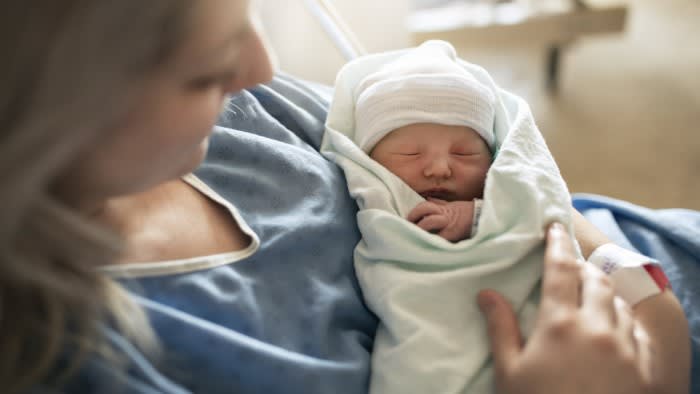Unlock the Editor’s Digest for free
By the end of this century, almost every country in the world could have a shrinking population. Although people are living longer due to advances in healthcare and a decline in poverty, they are also having fewer babies. Over the past 50 years, the global fertility rate — the total number of births per woman — has roughly halved to 2.3. In most advanced economies it is already well below the replacement rate of 2.1, where the population replaces itself from one generation to the next, taking into account mortality. Developing nations are on a similar downward trajectory.
The upshot is a decline in the working-age population across the developed world, which will bring significant social, economic and political costs if left unaddressed. Some blame a dystopian outlook among millennials and Gen Z — from the harms their children may cause to the climate, to the harms the climate may also do to them. But while a child-free life has gained appeal among some youngsters, for multiple reasons, the vast majority of under-30s in America who do not have kids yet still want them.

Rather, the long-term drop in the fertility rate is mostly the result of positive socio-economic trends. First, global female labour force participation and education levels have risen over the past half century. This has led to fewer children, or having them later in life. Second, economic development, better welfare systems and lower childhood mortality have reduced the need to have several children to support financial security.
In the developing world, fertility rates are still above the “wanted rate” — an estimate of what the fertility rate would be if all unwanted births were avoided — according to data compiled by the World Bank. But, in advanced economies couples tend to have fewer children than they want. This is because the hurdles to bringing up children have also risen.
Richer and higher-skilled economies come with more parenting costs, as childcare and education requirements tend to be higher. The opportunity costs of looking after kids, in lost earnings or leisure time, are also greater. But in advanced economies today, disposable incomes available to raise children have also been squeezed by rising living costs and sluggish wage growth. House prices have soared, and childcare support has often not kept up either. In the UK, some estimates put the cost of raising a child to 18 above £200,000. The average price of a first home in Britain is currently around £244,000.
The impact of falling birth rates should not be taken lightly. The burden of healthcare and pension spending for older populations will fall on a shrinking workforce. That may lead to higher taxes. Public finances will come under even greater pressure too. Fewer youngsters in the labour market could also limit innovation and productivity growth.
Populists push “pronatalist” policies, including tax breaks to have kids, as a solution. Not only do they warp women’s choices, there is little evidence that they work. Governments and businesses should instead do more to reduce barriers to those who do want children, particularly by making child-rearing a better deal for working parents. This includes boosting childcare support, removing disincentives to work in the tax system and improving parental leave entitlements. Yet, even Nordic nations with family-friendly policies are experiencing low birth rates.
The economic and social forces behind declining births are unlikely to be reversed in the long term. Studies suggest environmental factors may also be affecting fertility. Immigration could be a solution, but the politics remains difficult, and it is only a short-term option to propping up workforces with developing countries set to age too. Ultimately, the rich world will have to get used to having fewer youngsters around. That means older workers, AI and automation will have to pick up the slack.
Also Read More: World News | Entertainment News | Celebrity News






